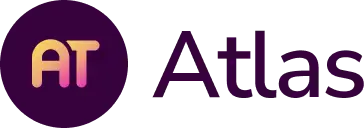At the end of every academic year, there is reflection and adjustment to curriculum to be made. As schools reflect on curriculum, instruction, and student outcomes of the year, consider these steps to to maintain the quality of your curriculum maps and identify opportunities to refine and improve upon them for the upcoming year.
Capture the changes
At the conclusion of each unit of study, teachers reflect on the teaching and learning and make appropriate updates in the moment. Similarly, the conclusion of the academic year is the time to review the learning that did or did not occur during the school year. Review the planned units of study and note standards or content that was not covered in the year and identify these in Atlas.
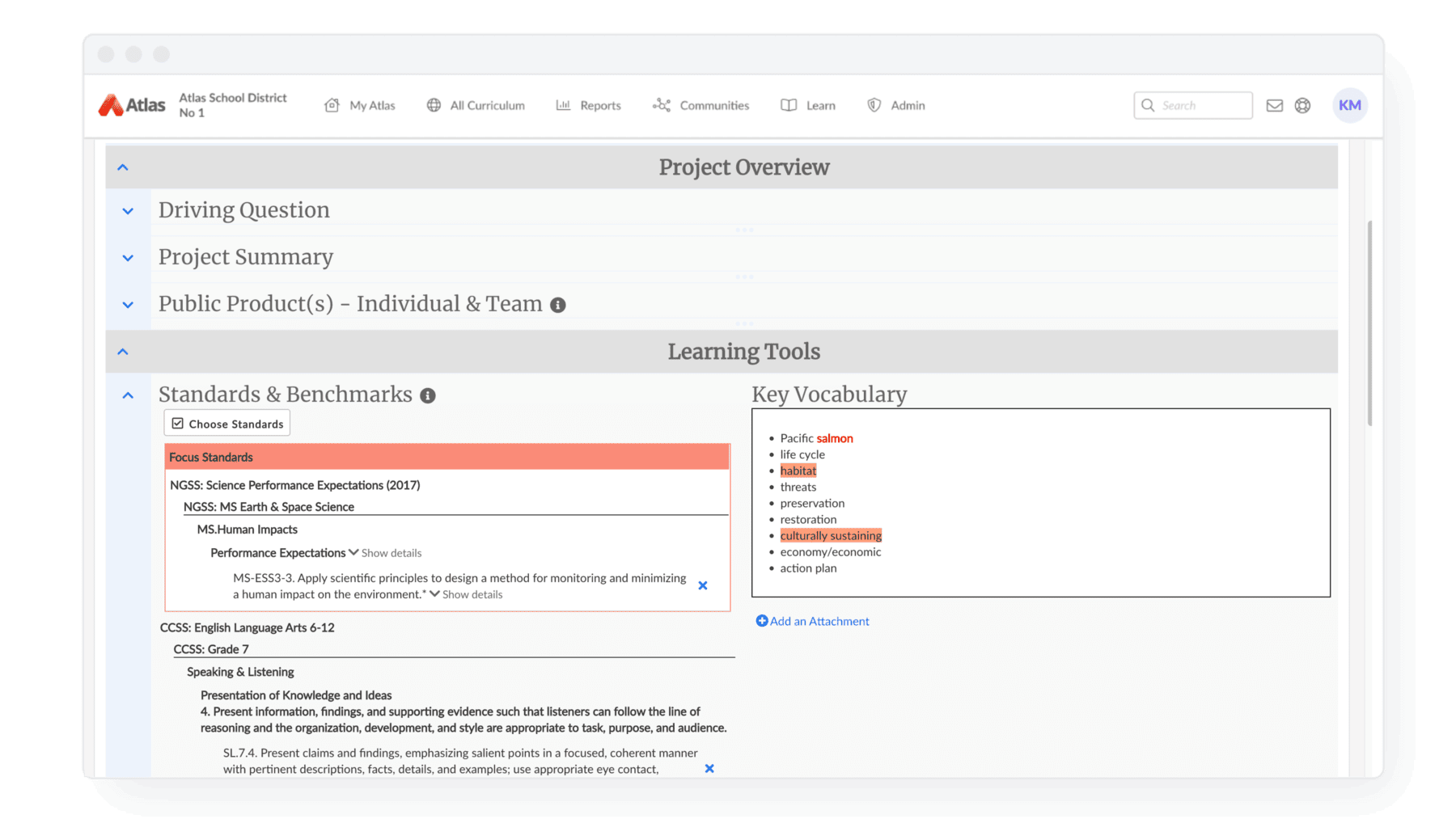
Use standards flagging to identify and text color or highlighting to show areas that require ongoing focus.
Identify the gaps
Once teachers have clearly documented their reflections in their units, the next step is to begin the process of identifying the gaps in student learning. Using a curriculum management platform like Atlas allows teachers to compile reports and compare units side-by-side to identify these gaps.

Use the Comparative Unit Calendar to look at units side by side
Prioritize the essential
Determining the most essential of the essential is key. Of the standards or learning targets that were determined to be opportunities for gaps, teachers should determine the non-negotiable essential targets. Some questions to consider during this process may include:
What targets are clear building blocks for the next year’s content?
What targets continue to spiral in future grade-levels?
What targets may be already addressed in next year’s course?
What targets should students have mastered in this grade-level?
What targets capture essential skills that students will need to be successful in future academic courses?
Knowing that not all targets can be addressed the following year, each grade level should determine 3-5 most essential targets.
Think Vertically
Once essential targets and standards have been identified, teachers can conduct a vertical review. By leveraging the reporting features in Atlas to analyze the progression from one year to the next, considering the gaps and priorities identified, teachers should plan for the following year. Some options may include:
Create a new unit that specifically addresses the missed essential targets from the prior year.
Copy a unit from the year prior into next year’s course.
Provide intentional scaffolding in units to support specific targets and gaps in learning.
Identify where specific learning targets spiral from year-to-year and determine where to provide more in-depth coverage.
Depending on the grade level, content area, and specific course, schools may opt for a combination of these to ensure adequate coverage of all essential learning targets.
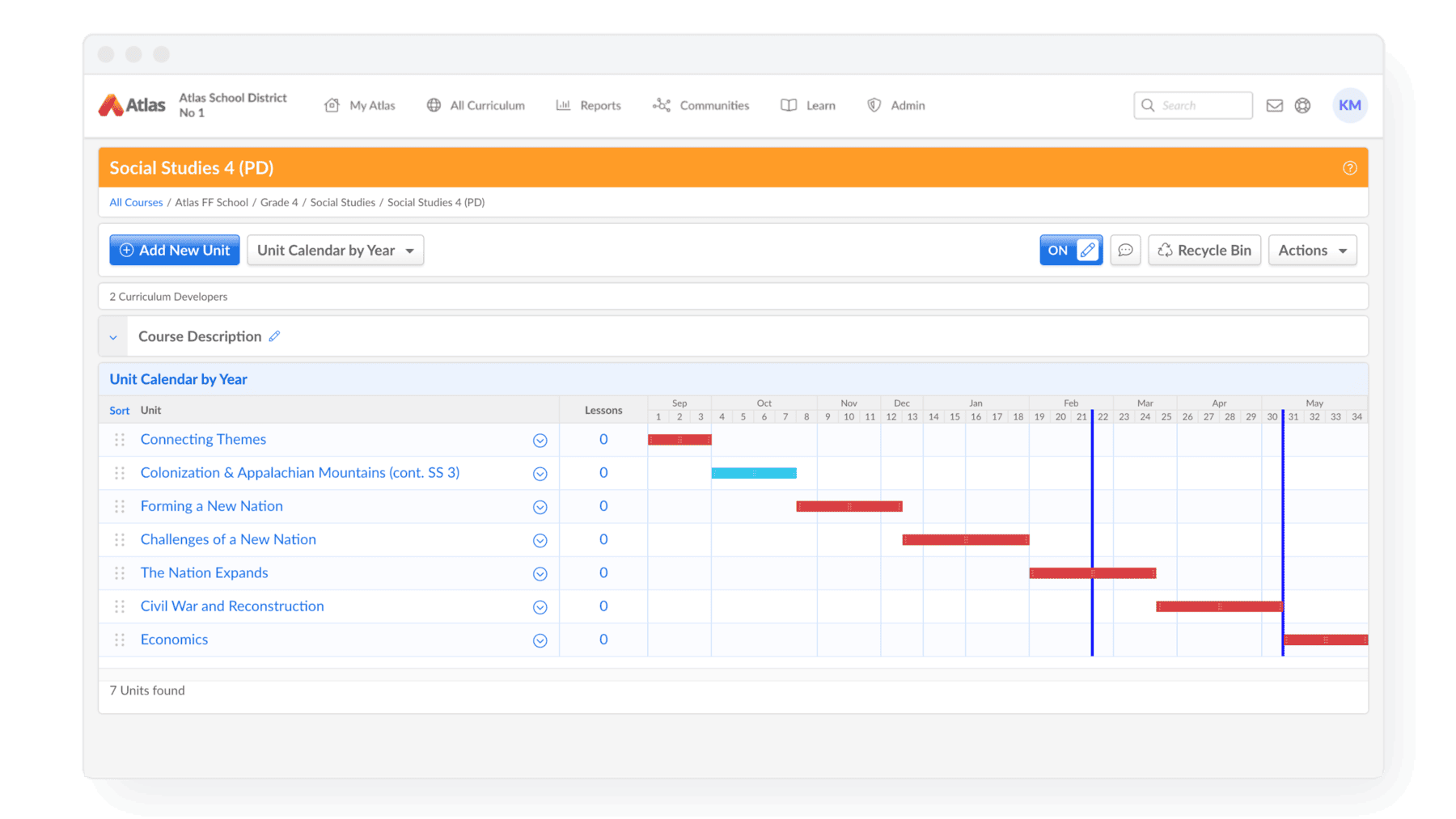
Use the color coding feature in the unit calendar to clearly mark unit changes made to the course
Edit and Revise
Once vertical reviews are completed, teachers can document any updates to ensure gaps are covered. This may mean making adjustments to standards, learning targets, and concepts. As updated learning goals are clearly defined, teachers will need to create or adjust assessments and learning activities to ensure alignment and coverage. By using a curriculum management software, such as Atlas, this process can be streamlined by sharing units and pulling resources from other courses.
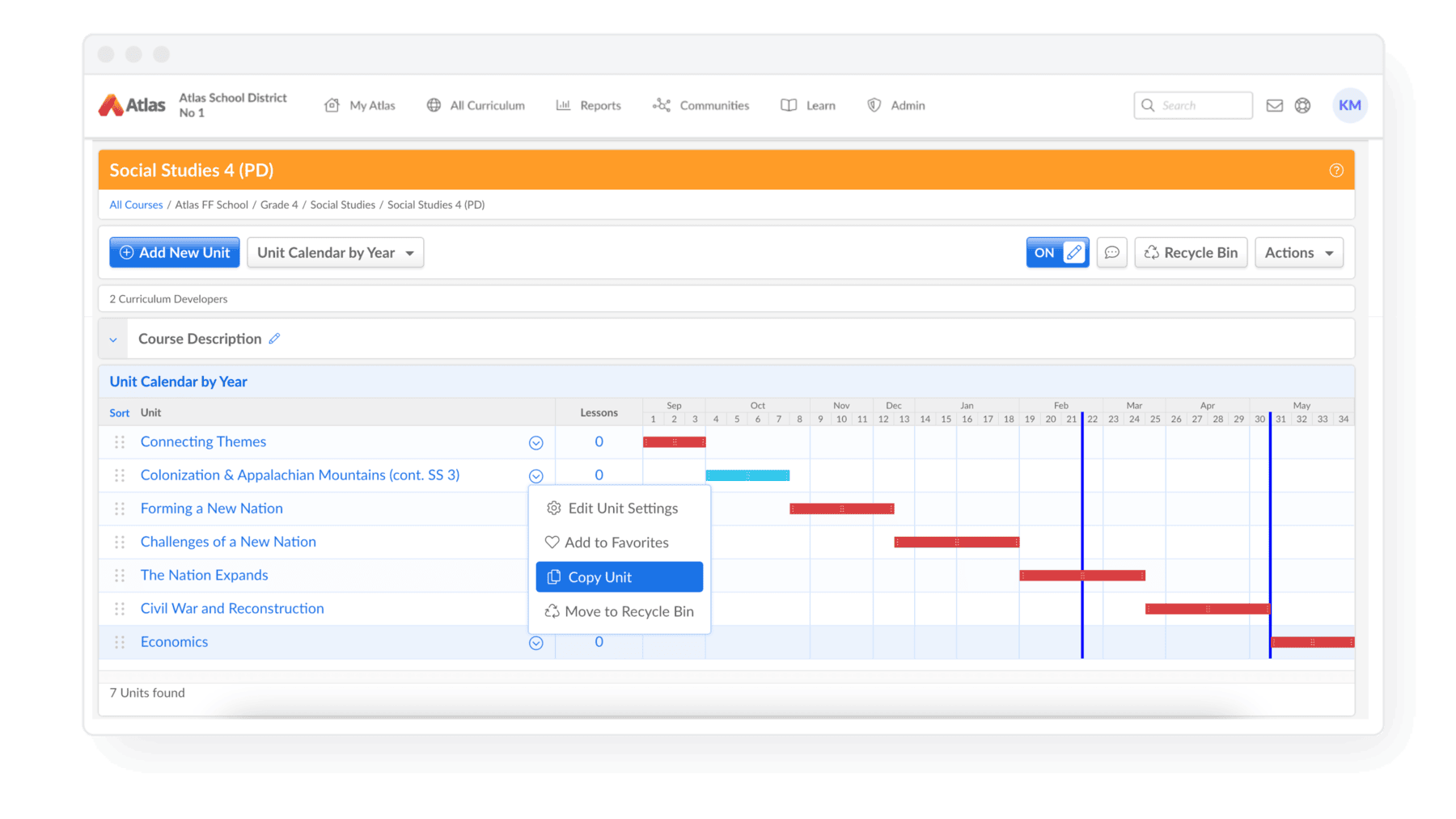
Use the copy a unit feature to copy a complete unit from one course to another
Ongoing Support
As teachers update courses, department heads, instructional coaches, and other leaders can support this work by leveraging their curriculum management tools. Periodic and ongoing review of progress can be supported by using the different reports in Atlas.
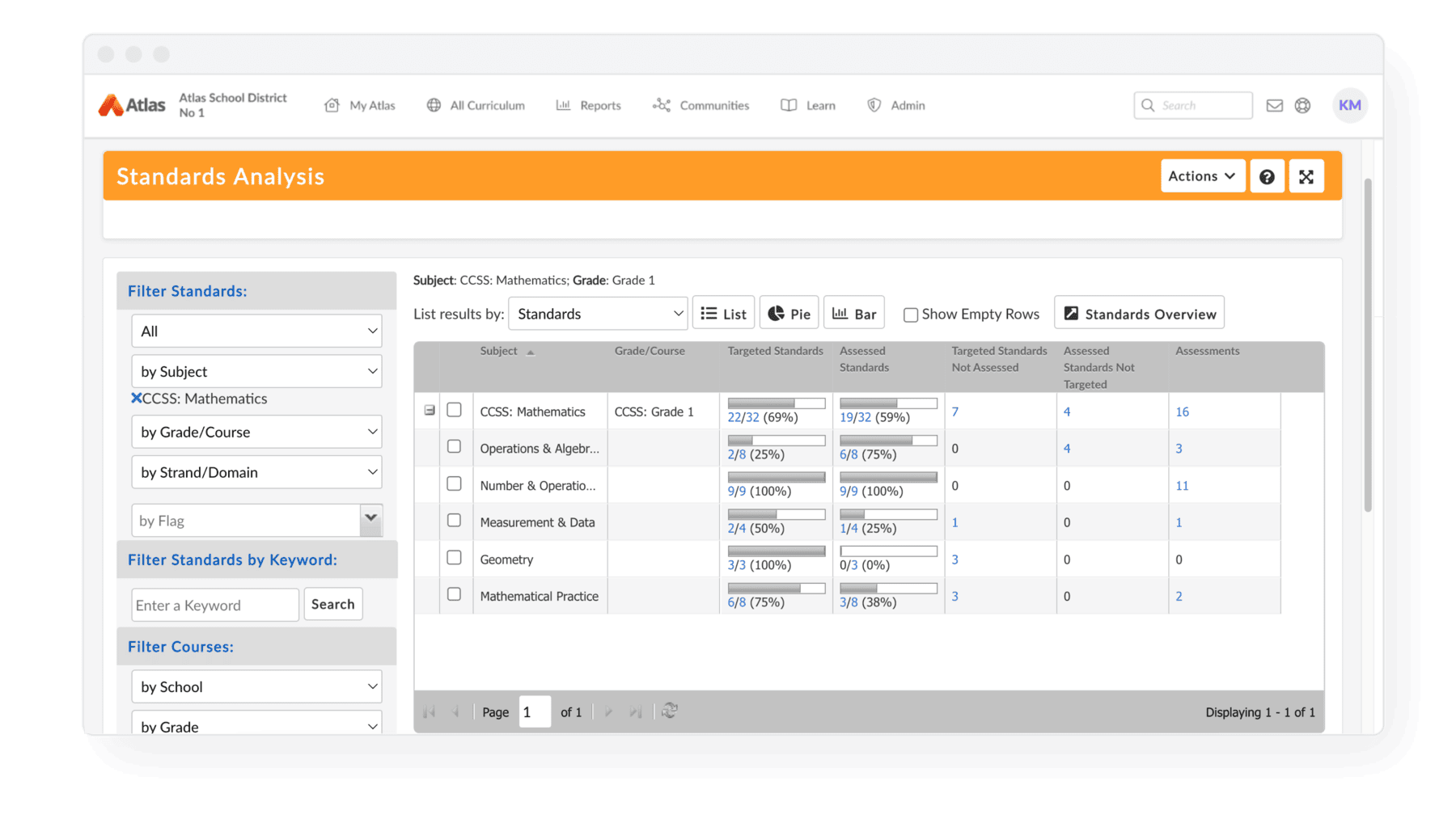
Use a Standards Analysis report to see where grade level standards are being targeted
As with every year, by taking this time to pause, reflect, and prepare for the upcoming year, we can continue to provide our students with a high quality education and prepare them to be the leaders of tomorrow.
About The Author
Marie Mugabe is a Senior Professional Development Manager at Faria Education Group. She currently consults with schools internationally and domestically, supporting teachers and administrators in curriculum development and educational practice. Marie has had many roles in her educational career, including: classroom teacher, ELD specialist, program director, curriculum developer and university professor. Her passion is finding new ways to leverage students’ assets in the classroom and ensuring that all students have access to authentic and rigorous curriculum. Marie earned her Educational Master’s degree from George Fox University in Portland.
